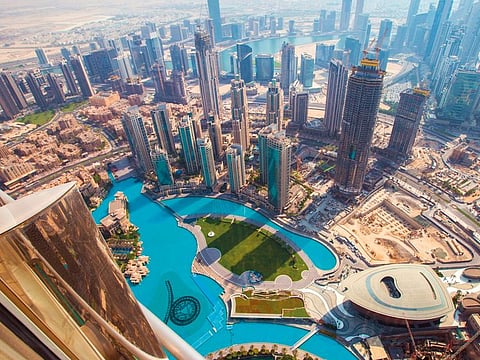UAE attracts record HNWI spending in real estate
HNWIs are investing in properties, driven by luxury, infrastructure, and lifestyle appeal

High-net-worth-individuals (HNWI) around the world earmarked $4.4 billion to spend on residential real estate in Dubai, according to Knight Frank’s second annual 2024 Destination Dubai report. This figure is 76 per cent higher than we were able to uncover last year, highlighting the sustained strength of demand for housing in the emirate from international buyers and investors who are non-resident in the UAE.
Together with YouGov, we conducted a survey of 317 high-net-worth individuals (HNWI) — 217 globally and 100 expatriates based in the GCC — to better understand their perspectives, preferences, and ambitions regarding real estate investments in Dubai. Collectively, these respondents hold a combined net worth of $5.4 billion.
Dubai has once again emerged as the top choice for global HNWI seeking real estate in the UAE, with 73 per cent identifying it as their preferred emirate, up from 67 per cent in 2023. This underscores Dubai’s growing prominence among the world’s affluent. Abu Dhabi ranked second with 23 per cent, while Sharjah claimed third place with 5 per cent.

Dubai continues to captivate the global HNWI community. The city has solidified its reputation as the world’s busiest market for homes priced at $10 million or more. Wealthy investors remain drawn to the allure of the Dubai lifestyle, with luxury homes in the city remaining highly sought-after. Notably, demand for Dubai homes rises significantly with net worth: 28 per cent of HNWI worth $2–5million desire property in the city, compared to 78 per cent of those with personal wealth in excess of $15 million.
This segment of ultra-luxury buyers heavily influences price trends across Dubai’s mainstream market. Between January and September 2023, approximately 122,000 residential transactions were recorded, surpassing Dh300 billion in value and exceeding last year’s totals. This sets 2024 on course for yet another record-breaking year. In fact, Q3 2024 saw all-time highs in both sales volumes and values in the residential market.
What stands out is the extraordinary spending power of ultra-high-net-worth individuals (UHNWI) considering Dubai properties. About 25 per cent are willing to invest $60–80 million on a home purchase, while 16 per cent are open to spending more than $80 million. On average, UHNWI budgets sit at $58.5 million.
Dubai’s ascent has been powered by its evolution into a global commercial hub over the past 50 years. This success is supported by world-class infrastructure, emphasis on social mobility, and exceptional public safety. Additionally, Dubai’s connectivity is unmatched: it is within an eight-hour flight of the Middle East and a six-hour flight of major cities in the Indian Subcontinent, China, Europe and Africa.
Among the HNWI we surveyed, 54 per cent cited Dubai’s top-tier infrastructure as the leading factor making the city attractive for real estate purchases. This aligns with the UAE ranking fourth globally for infrastructure quality in the World Economic Forum’s 2023 competitiveness report.
Dubai’s status as a global tourist hotspot ranked second (52 per cent) among key pull-factors for a property acquisition in the city. Dubai has risen to become the world’s third most-visited city in an extremely short period of time, welcoming 17.1 million visitors in 2023, behind only London (18.8 million) and Istanbul (20.2 million). In the first half of this year alone, Dubai hosted over 9.1 million visitors, with its airport set to handle 92 million passengers—a new record. The city has also claimed the title of the most popular tourist destination in the world for an incredible three years in a row: 2022, 2023 and 2024, according to Trip Advisor.
Destination communities
Dubai’s residential market has adapted to meet the needs of its diverse expat population, offering destination communities with distinct amenities. While facilities like schools, community malls, clinics, and sports facilities are now standard, demand for properties with access to green spaces and parks has surged.
Access to green spaces remains the top priority for HNWI considering property in Dubai, with 88 per cent listing it as a critical factor in their decision-making. The global emphasis on well-being is also reflected in the preference for proximity to clinics or hospitals, which ranks as the second most important criterion. Additionally, access to the beach is the third most cited factor, underscoring Dubai’s appeal as a city synonymous with beachfront living.
The combination of demand for green spaces and beachfront living offers developers a clear strategy to attract wealthy buyers. However, with only 368 homes planned in Dubai’s prime areas, supply remains far below current demand, driving continued price escalation at the luxury end of the market. ■



